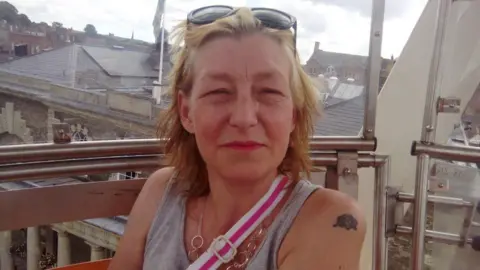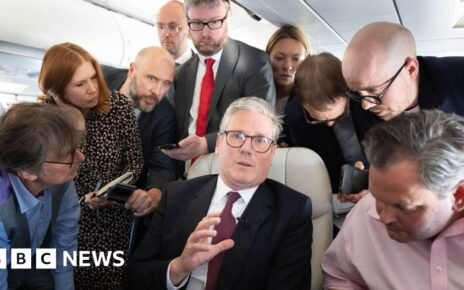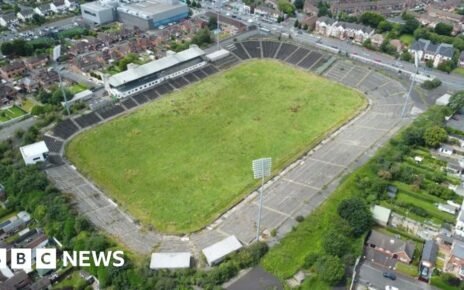[ad_1]
Former spy Sergei Skripal believes Russian President Vladimir Putin was behind a plan to poison him with the nerve agent Novichok, the inquiry into the death of Dawn Sturgess has heard.
Ms Sturgess, 44, was killed by the poison which was left in a discarded perfume bottle in Amesbury, Wiltshire, in 2018.
Mr Skripal and his daughter Yulia were seriously injured when members of a Russian military intelligence squad are believed to have smeared the nerve agent on his door handle.
“I never thought the Russian regime would try to murder me in Great Britain,” he told the inquiry in a written statement.
What have we heard today?
- Counsel to the inquiry, Andrew O’Connor KC, described Sturgess as an “innocent victim, in the crossfire of an illegal and outrageous assassination attempt”
- He added that the nerve agent, that was found in a perfume bottle used by Sturgess, held enough to kill thousands
- The family of Dawn Sturgess has called for Putin to give evidence at the inquiry and look the “family in the eyes”
- Michael Mansfield KC spoke for the Sturgess family. He says Wiltshire Police decided Sturgess and partner Charlie Rowley were suffering from drug overdoses, which had an affect on their medical treatment
- Charlie Rowley continues to suffer from long term injuries such as problems with his vision, balance and memory, says Adam Straw KC, representing the Sturgess family
Russia has denied involvement in the death and said the inquiry is a “circus”.
The Skripals will not give evidence in person to the public inquiry, due to concerns for their safety.
In an interview in May 2018, two months after he, his daughter Yulia and then-police officer Nick Bailey, were poisoned in Salisbury, Wiltshire, in March that year, a police officer put it to him that he believed President Putin was responsible.
A police interview transcript shows Skripal saying: “It’s my private opinion.”
 Facebook
FacebookIn the last week, Mr Skripal provided a further witness statement to the inquiry, in which he said “it is not honourable to kill people who have been exchanged and the attack on Yulia and me was an absolute shock”, the inquiry was told.
He added in the statement read by Mr O’Connor: “I had received a presidential pardon and was a free man with no convictions under Russian law.
“They could have killed me easily if they wanted to when I was in prison.”
Mr Skripal also said that, after leaving Russia, he lived “quite a normal life”, but he thought returning to Russia would be “dangerous”.
He said President Putin “must have at least given permission for the attack”.
Mr Skripal said: “I believe Putin makes all important decisions himself. I therefore think he must have at least given permission for the attack on Yulia and me.
“Any GRU (Russian Federation) commander taking a decision like this without Putin’s permission would have been severely punished.”
Mr O’Connor also said that Jonathan Allen, a senior Foreign, Commonwealth and Development Office official, provided the inquiry with a statement in which he said it is the Government’s view that Putin “authorised the operation”.
The inquiry will look into whether the UK authorities took appropriate precautions in early 2018 to protect Mr Skripal from being attacked.
Mr O’Connor said the fact that Mr Skripal was a former senior GRU officer living in the UK “arguably placed him at some risk”.
He added that Mr Skripal recognised this himself in a police interview in 2018, in which he said: “I am a very important man of special services.
“Still now I know a lot of Russian secrets, top secrets, they are really dangerous for Russian special services.”
The inquiry will also examine whether the poisoning of Ms Sturgess could have been prevented.
The inquiry will sit for a number of weeks, moving between Salisbury and London. A final report is expected in 2025.


[ad_2]
Source link




